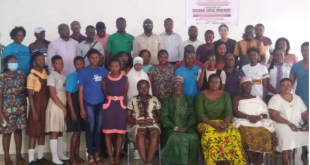A study conducted by Sustainable Development Focus (SUDEF), a Non-Governmental Organisation, has revealed that 95 per cent of girls in rural areas in the country failed to attend school during menstrual periods.
According to the study, most of the girls could not manage themselves well because of lack of modern sanitary pads, sanitary facilities, water for personal hygiene and inadequate disposal options.
Mr. John Baidoo, Chief Executive Officer of SUDEF, who made this known, expressed regret that most girls in rural areas used old and tattered rags as sanitary pads.
He was speaking at a durbar organized by the NGO, which works to promote water, sanitation and hygiene at Susuanso, to commemorate the 2014 Menstrual Hygiene Day (MHD) over the weekend.
The MHD, which falls on May 28 every year, was instituted by the United Nations (UN) to raise awareness and help women and girls adopt and improve on personal hygiene during menstruation.
Mr. Baidoo observed that because school girls in deprived communities are not able to manage their menstrual periods in safety and privacy due to a number problems, they felt embarrassed to mix-up with their peers in school.
He explained that the environment in many schools in deprived areas are not conducive for girls in their adolescent stage as they could not have access to facilities to change their sanitary pads and underwears.
Mr. Baidoo emphasised that menstruation is a natural process, but if not properly managed, could lead to health complications and problems, indicating that poor menstrual hygiene could lead to psychological and productive problems in girls.
He stressed that, it is essential for the government and her development partners to increase girl’s access to water and sanitation facilities in schools to improve menstrual hygiene.
There is also a need for both girls and boys to have a greater awareness of menstrual hygiene, Mr. Baidoo added.
Source: GNA
 DCI-GHANA Defence for Children Internation
DCI-GHANA Defence for Children Internation






